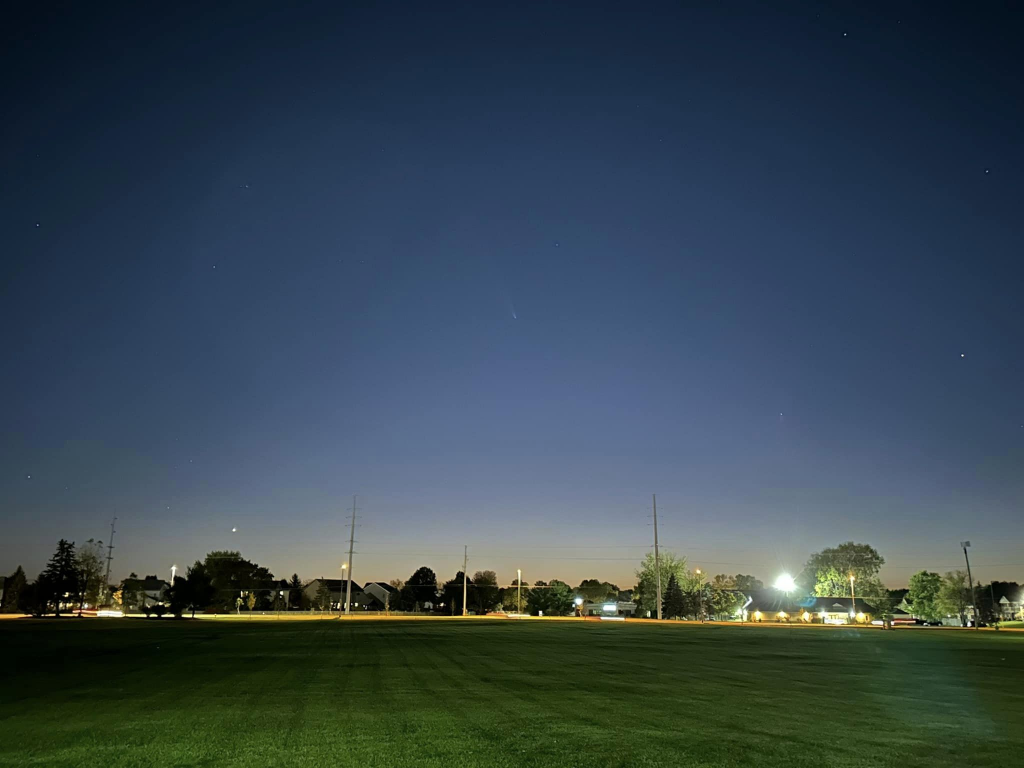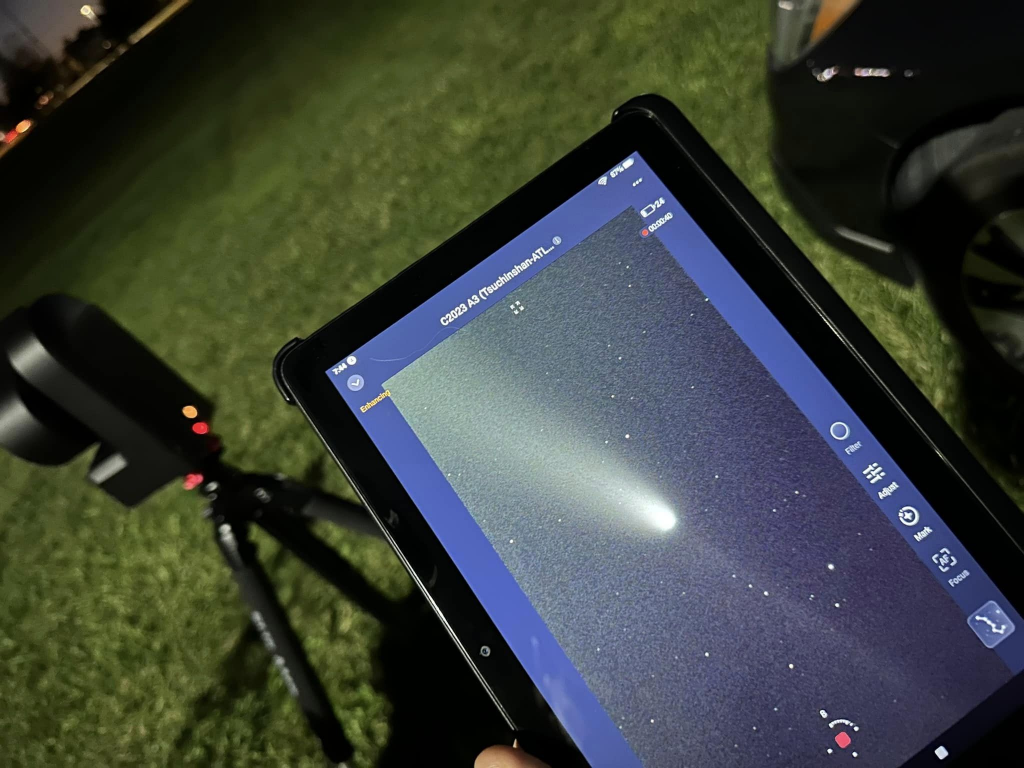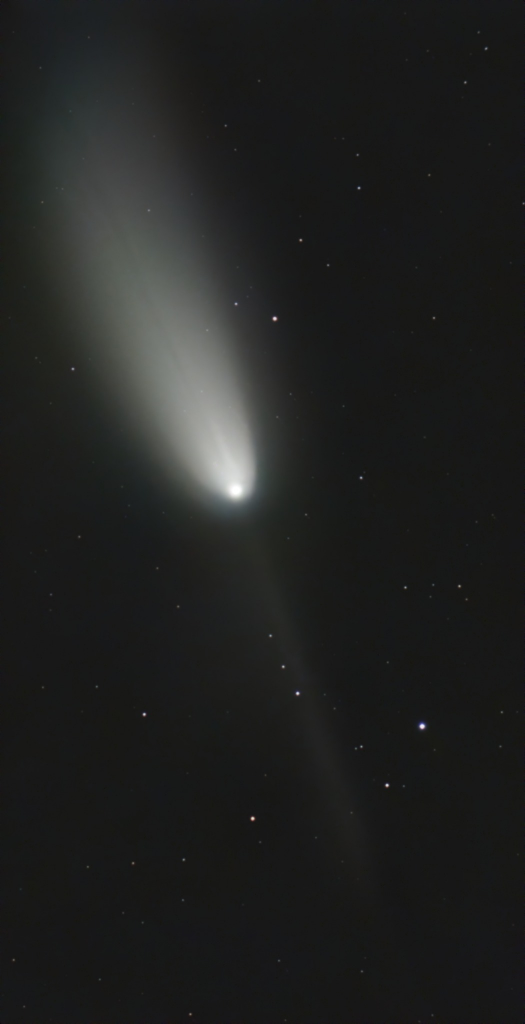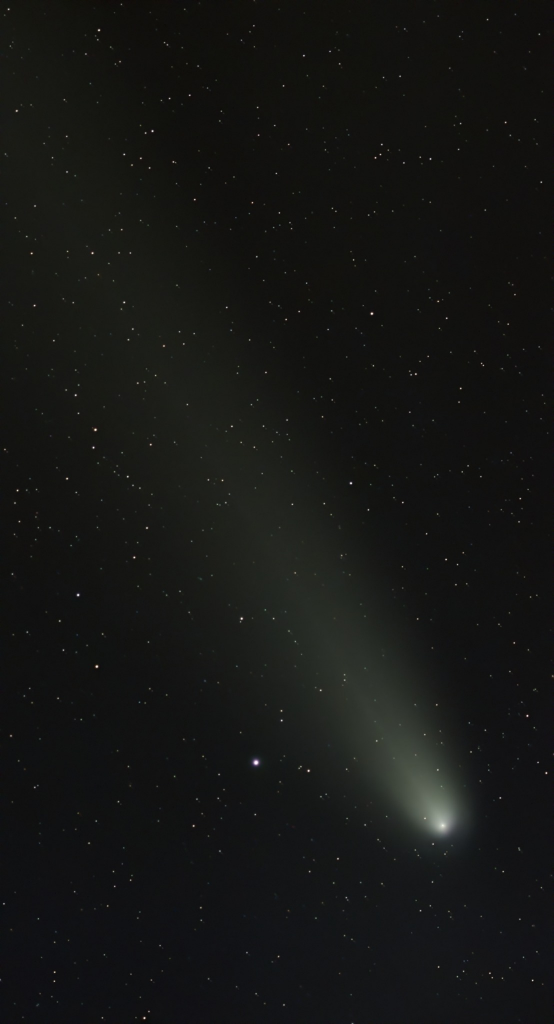In the preceding months, astronomers were talking about a new comet that could put on quite a show. Observers in the southern hemisphere were tracking the comet in the morning skies and on October 9th, the comet started moving back around to the evening side for observers in the northern hemisphere.

On the evening of October 16th, a neighbor and I went to a local elementary school to observe the comet. There were many parking lot lights, but I was able to get a picture with my phone.

I set up the Seestar to begin capturing my first comet with the Seestar. My neighbor was pretty impressed!

Using the steps from this video from VisibleDark, I processed the images acquired that evening. I was not pleased with the results, and I realized that the Graxpert Gradient removal affected the comet tail. Also, the framing was off.

On October 24th, while at my parents house, I brought the Seestar over to attempt to capture the comet a second time. I feel this acquisition is much better than the last one. I framed it better and I did not use Graxpert this time.

The Seestar continues to amaze me on what it can do!
